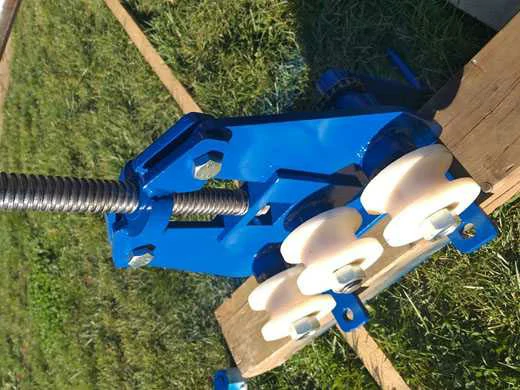Advantages of Ductless Fresh Air Systems
Enhanced Indoor Air Quality
Ductless fresh air systems offer a number of advantages over traditional HVAC systems, with one of the most significant being the enhancement of indoor air quality. By introducing fresh outdoor air directly into the living space, these systems help to dilute indoor pollutants such as volatile organic compounds (VOCs), carbon dioxide, and other emissions from cooking, cleaning, and off-gassing from furniture and appliances. This continuous supply of fresh air can contribute to a healthier indoor environment, reducing the risk of respiratory issues and allergies.
Energy Efficiency
Another key advantage of ductless fresh air systems is their energy efficiency. Unlike central HVAC systems that cool or heat an entire building at once, ductless systems allow for targeted cooling or heating in specific zones or rooms. This zoning capability can lead to significant energy savings by avoiding the need to condition unused areas. Additionally, ductless fresh air systems often utilize energy recovery ventilation (ERV) or heat recovery ventilation (HRV) technologies, which enable the exchange of heat and moisture between incoming and outgoing air streams. This process helps to pre-condition the incoming air, reducing the workload on the heating and cooling components and ultimately lowering energy consumption.
Flexible Installation Options
One of the most attractive features of ductless fresh air systems is their flexibility in installation. As the name suggests, these systems do not require extensive ductwork, making them ideal for both new construction and retrofit applications. The absence of ducts not only reduces installation time and costs but also provides greater design freedom for homeowners and building occupants. In addition, the compact size and versatility of ductless systems allow for easy installation in spaces where traditional ducted systems may be impractical, such as historical buildings, small apartments, or room additions.
Quiet and Unobtrusive Operation
Compared to traditional HVAC systems, ductless fresh air systems are known for their quiet and unobtrusive operation. The indoor units of ductless systems are designed to operate silently, creating a more comfortable and peaceful indoor environment. Additionally, the outdoor condensing units of ductless systems are typically smaller and quieter than those of conventional air conditioning systems, minimizing noise disturbances for both occupants and neighbors. This quiet operation can be particularly beneficial in residential settings, enabling occupants to enjoy a peaceful atmosphere without the disruptive hum of a traditional HVAC system.
Improved Control and Comfort
Finally, ductless fresh air systems offer improved control and comfort for building occupants. With individual air-handling units in each zone or room, users have the ability to customize the temperature and airflow according to their preferences, avoiding the “one-size-fits-all” approach of central HVAC systems. This personalized control not only enhances comfort but also contributes to energy savings by avoiding over-conditioning of spaces. Furthermore, many ductless systems come equipped with advanced features such as programmable thermostats, Wi-Fi connectivity, and smartphone apps, allowing users to manage their indoor environment with greater convenience and precision.
In conclusion, ductless fresh air systems provide numerous advantages ranging from enhanced indoor air quality and energy efficiency to flexible installation options and improved comfort. With their innovative technology and user-friendly features, these systems represent a compelling alternative to traditional HVAC solutions, offering a healthier, more efficient, and more customizable indoor environment for homes, offices, and various other building types.
.webp)




